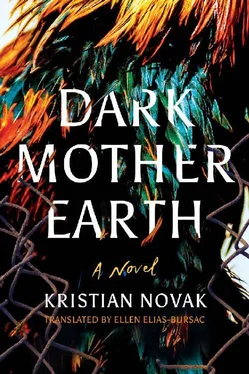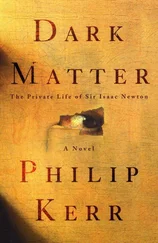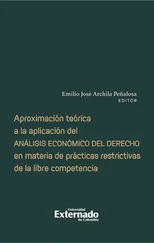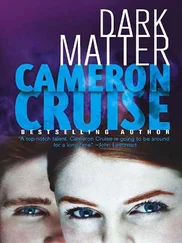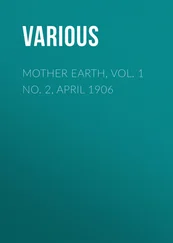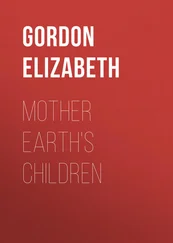Dad often sang a song about people who lived in a valley of dreams, where this boy and girl first kissed. He whistled the parts where he didn’t know the words, and sang the loudest when he came to the part about the valley. Until then, I’d taken this to mean that the two of us would leave the valley of dreams to find the secret treasure in the hills. Now I wasn’t so sure.
Mom came into my room, but I turned to face the wall so she couldn’t see my eyes. She said now it was just the three of us, and I had to do what she said and be good. I mustered all my strength and said: “Would you still love me if you knew I’d done something bad? Not like messing up the screws—something way, way worse?”
“What? I’ll always love you, come hell or high water. Spit it out, what’s this bad thing you’ve done?”
“I can’t say it, I’ll never tell.”
She let me go visit Granny, a few houses away, closer to the Mura. I was relieved, I could no longer bear the hush of absence in the house. There was always a subtle feel of absence at Granny’s (probably since Grandpa Matjaž died), but I was used to it there.
I helped Granny get the chickens settled in for the night, and then I played in her room while she knitted and watched TV. Her house was smaller, but more fun than ours. On the wall by the bed hung a rug that showed two deer drinking from a stream and a needlepoint tapestry of big rabbits, and in the kitchen there was a sizable picture of Jesus, a long-haired fellow with a beard and mustache in a red-and-blue robe. Through the red you could sort of see his heart, and he was pointing to it. I thought maybe he had a T-shirt on under the robe with a picture of a heart on it.
I loved my granny so much that I’d even watch the quiz show Numbers and Letters with her and pretend it was interesting. I wondered if maybe she was only pretending to like it for my sake. That didn’t bother me, maybe we both watched it because we loved each other. Mostly we didn’t say much except when I convinced her to tell me stories. I had to promise I wouldn’t have nightmares (as if that were something I could promise) and that I’d pray a decade on her rosary beads with her. As she put the rosary down beside the red-and-white polka-dotted enamel cup, her dry lips brought to life stories about the ghoulish will-o’-the-wisp folk, about the Mura maidens who drew young men to the river’s silty bottom, about the knight of Malekoci, who hurled his mace all the way to the next village, about the little girl from a song whose father drowned in the Mura though she escaped death, about the ancient church that sank long ago but poked up at times through the river’s surface, and about miners who were still buried deep down in a shaft up there in the hills.
These stories didn’t scare me when I was with Granny, because she seemed essentially fearless. She’d survived hunger and disease and the war with the Germans and the Russians and the Cossacks of Cherkasy, and she wasn’t afraid of bad weather or the future. Still, there was one thing that gave her nightmares: pop singer Josipa Lisac. Lisac wore weird clothes and stared intensely at the camera. Granny wasn’t really scared of her, she was really scared of hell, because she thought that if Saint Peter balanced Granny’s scales wrong, Josipa Lisac would send her to the fiery depths wearing spikes on her head and a metal corset.
That evening she told me about the invisible children. Adam and Eve had many children, and when they heard God was going to visit, they started washing their grimy offspring. They didn’t have enough time to wash the whole kit and caboodle, so they only showed God the clean ones. God knew they were hiding some so he decided that everything they hid from him, he’d hide from them. Ever since then, those children have been invisible.
It still wasn’t totally dark out, so I urged her to tell me the blood-chilling story about the Mura maidens again. How odd that all her scariest stories somehow ended up in the Mura. I personally didn’t think of the river as threatening. I loved tossing pebbles and leaves into it, and running along the shore following my little boats. But none of the grown-ups liked the river. It flooded often, and chilly fogs rose off it in the fall and made the frail older folks sick so sometimes they died before Christmas. In summer, clouds of mosquitoes rose up from the bogs and gave off the peculiar, fusty stench of stagnant water, so choking that people couldn’t even talk on the street those evenings and had to retreat to their homes. And every so often, word got around that somebody had drowned in the river. The most recent was Milan, a Roma man out for a good time on a humid August afternoon. Before him, a fisherman had drowned. The only things that were found were the fisherman’s bicycle, earthworms, and a three-legged stool that looked as if it were peering into the water waiting for him to reemerge. People joked that maybe he’d gone swimming with the Mura maidens, as he was quite an old coot.
Granny and I talked till dark that night. Before Mom came to get me, I asked what happened to the young men who were dragged down by the Mura maidens to the river’s bottom. She said they were still waiting there, beneath the riverbed in total darkness, for someone living to be traded for them. Perhaps she shouldn’t have told me that.
I didn’t really like kindergarten. I had only a few friends among my classmates. The rest, I could tell, didn’t bathe every Saturday, and some had grime under their fingernails, which I thought was disgusting because my mom and sister said it was. Some were boring, and some were rough and loud and laughed for no reason. And somebody who laughs for no reason is a dimwit. There weren’t enough toys. When our teacher opened the toy cupboard, we understood, briefly, what life would be like for a very poor child. The toys looked as if our teacher herself had played with them when she was little. The teacher had a big bosom, which I liked looking at, and crooked brown teeth. When she walked, she left a lingering scent of cigarettes, coffee, and vegetable stew, beans, green bean casserole, or goulash, depending on the day of the week. The tables and floors in the classroom were old and crumbling, and sometimes I’d inadvertently bring home a fragment of the classroom furniture or flooring in my hair, socks, or sweater, or under my fingernails. If I’d gone to school enough, I’d have ended up taking the whole place home with me. The teacher and her friends always wore the same clothes and stood in the room they called the teachers’ lounge and smoked cigarettes as if they had no idea what was fun. Or maybe they knew exactly what was fun, and had chosen to do everything else. Out of nowhere, these harlequins and clowns would show up, and they’d dance and sing about how the greatest riches lay in friendship and how our Yugoslav seacoast connected all the peoples and lands the world over. In my opinion, they were total nobodies. The teachers read us a story about a girl who was persnickety and headstrong. The teacher said she was flighty and capricious; the girl had red hair in braids that stuck out on either side, and she did weird things just because she felt like it. This made no sense to me. Why tell us a story about a girl like that? If she’d been in our class, nobody would’ve wanted to be friends with her, and the teacher would’ve punished her. If I’d been in charge, we’d have been singing songs about ninjas and their throwing stars and reading picture books with KITT and Simon Templar in them.
We learned we were supposed to say that nowhere is life better than in Yugoslavia, because everybody here is happy and free and equal. Still, none of us knew what our country had done that was so important after—all by ourselves—we sent the Krauts and that Napoleon guy packing (which was enough for me to be ashamed of my German pencil case and felt-tip markers). We learned two big words: socialism and camaraderie . Camaraderie was the most precious treasure, and socialism was when everybody helped everybody else and there was no one in charge to tell you to do anything. We learned to sing a song about camaraderie, and the teacher asked what we thought about it. I didn’t know what I thought, so I said that what mattered most was when everybody was friends, and it was best when we all played together and helped each other and had camaraderie. She praised me, so I relied on that principle to answer every question I was asked all the way—now that I think about it—through my university studies. I didn’t think any of my classmates actually thought camaraderie was such a big deal. Maybe only Silvija Jambrožić and Suzana Perčić, who always played at pretending they were teachers. Nobody wanted to be their students, so they took turns being teacher and student, and were very strict with each other. Camaraderie, the most precious treasure. I wanted to tell everybody that my dad was getting me remote-controlled cars from the Quelle catalog so they would fight over who could be my friend and have that dumb camaraderie thing with me.
Читать дальше
